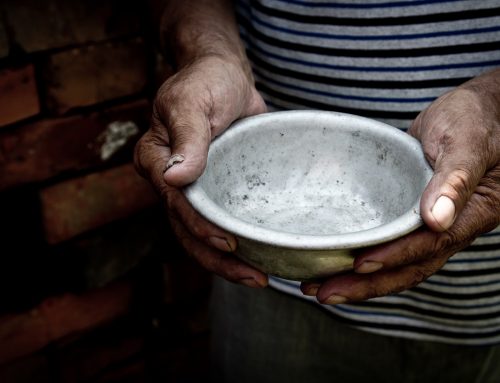Jeff Hearn, Professor Emeritus at Hanken School of Economics, recently posted a text about masculinity and crisis on the Global Discourse Blog. The journal Global Discourse is an interdisciplinary journal on current affairs. We are proud to be able to publish the same text here on the Hanken Blog:
One of the problems with talking about crisis is that the term is over-used, especially in newspaper headlines, and celebrity and sports pages. Against this, there are dire crises – of people, societies, ecosystems, and the planet. Indeed, as I write, there is threat of war in Europe – threatening the largest armed conflict there since the Yugoslav wars 1991-2001. The current threat certainly constitutes crisis.
For myself, I’m became interested in crisis in the 1970s UK; there were several prompts. One was the pattern of with booms and slumps that seemed to figure in mainstream economy and politics, not least the 1973 Oil Crisis, mirroring dramatic crises of nineteenth century capitalism. Another was long-term interest in urban and social planning, and thus “planning talk”, and its counterposed “crisis talk”, rhetorically justifying x, y or z. Then, there were changing forms of work and career, gendered careers, and how the supposedly conventional male lifelong career was entering ‘crisis’ (as in ‘non-careers’), as if that hadn’t long been a fiction for many. Fourth were what then appeared ‘slower’ crises, including longer-term ecological crises, foregrounded by the green movement, the peace movement and ecofeminism.
Since then, crisis has never seemed to go away; crises appear ever-present. So, jumping forward several decades, it was a privilege and pleasure to be invited to join the Lund University Pufendorf Institute Advanced Study Group and CRISIS Theme that led onto this special issue. Working with the group on interdisciplinary crisis studies (ICS) has been an inspiring time.
So, what has all this go to do with men and masculinities? For a start, almost all crises have a gender dimension. Less often is it recognised that this gendering applies to the place, position and power of men. When one thinks, and acts, on the relations of different men and masculinities to crisis or crises, many connections follow. Indeed, looking back it has been geopolitical disruptions of national and imperial power – crises – that have prompted growth of focused critical studies on men and masculinities (CSMM). This applies in, for example, reflections post-Second World War, loss of the British Empire, US defeat in Vietnam, post-socialist transformation Central and Eastern Europe, and post-Apartheid South Africa
More specifically, crisis, men and masculinity are most often put together in terms of the “crisis of masculinity”, with in its own various, sometimes opposed, interpretations. This approach is often employed at the personal, interpersonal and identity level. It’s the most widely used, probably also over-used, notion of crisis in CSMM, usually seen as deriving from forces exogenous to men and masculinities – zeitgeist, technology, social change. In reply to the question: “Is masculinity really in a state of crisis today?”, Polish professor Adam Dziadek responded:
The crisis began with the fall of the great Enlightenment invention which was faith in a certain idealised image of man. I think we have been dealing with these masculinity crises since they started to be discussed and defined. The crisis of masculinity is a purely discursive matter – there is nothing unusual about the effeminacy of modern men, in that they use cosmetics and care for their bodies … the subtitle of the third part of the Histoire de la virilité … edited by Jean-Jacques Courtine on masculinity of the 19th and 20th centuries was marked with a question: La virilité en crise? [“Masculinity in crisis?”]
Somewhat differently, crises around men and masculinities can be understood as largely endogenous, that is immanent within men, masculinities, and the gender system. This can be seen in two main ways, in: first, the recognition of endogenous crisis tendencies within the very patriarchal relations that account for the crisis construction of masculinities – to put it simply the crises of patriarchy; and, then second, endogenous crises tendencies of gender itself, accounting for the crisis deconstruction of men and masculinity. The latter highlights a deep problematisation of what ‘gender’ ‘is’, how gender/sex/sexuality overlap or not, notably with critiques of LGBTIQ+ social movements, politics, theorising – to the extent that the concept of gender is problematic and doesn’t work so well in contemporary society. Perhaps we need a new concept, like gex, to refer to the non-equivalence of sex/gender/sexuality.
Finally, there are macro, global and transnational crises of men, often created by certain men. Despite all the obvious evidence, this approach is the still the least developed, typically, if not always, implicit and often unnamed, under-used or even ignored in much of CSMM. On the other hand, in very recent years there is increasing attention to the central place of certain men and masculinities in such questions of crisis at the macro, global and transnational scale. War is the most obvious form of such crises; few would dispute war as crisis, for individuals through to war-torn regions, including ecological damage. How on earth can one possibly analyse wars and armed conflict without placing men and masculinities centrally? Now, in addition, ecological crises, economic and financial crises, pandemic crises, political, authoritarian, nationalistic and (anti-)democratic crises, are everyday talk. One can add crises around technology, AI and the singularity, racism, and (post)‘truth’. In all these, complex yet obvious intertwinings of men, masculinities, gendering, and crisis figure prominently.
To take one example: men, certain men, and certain masculinities, have played and continue to play a key role in environmental damage – and planetary crisis in the Anthropocene. Bio-environmental-ecological crises, including around non-humans, climate change, energy, water, extractivism, food, transport, and impacts on the planet and sustainability derive very much from the tendencies of some men and masculinities to domination and exploitation (humans, non-humans, the environment, the planet, nature), and disregard the effects of and responsibility for actions, with damaging consequences on the natural environment. This ranges from grand-scale direct environmental destruction through to men’s far greater travel footprint to everyday associations of meat-eating and masculinity. ICS and CSMM need to come together. For the planet to survive, crises to be ameliorated, apocalyptic collapse averted, men and masculinities have to change – fundamentally, very fast.
20 February 2022
Contents: Crisis: Critical and Interdisciplinary Perspectives? Volume 12: Issue 3-4
Didier Fassin: Preface: Crisis as Experience and Politics
Roger Zetter: Refugee crises – an architype for crisis studies
Sylvia Walby: Crisis and Society: Developing the theory of crisis in the context of COVID
Heidi Gottfried: Crisis and Change: The Politics of Potentialities (Reply to Walby)
Henrik Vigh: Slow Crisis: Critical continuities in Bissau and beyond
Ninna Nyberg Sørensen: Crisis as ‘slow’ or an existential state of being (Reply to Vigh)
Jonathan D. London: Social Reproduction meets the World Market (Reply to Rydstrom)
Jeff Hearn: The place and potential of crisis/crises in Critical Studies on Men and Masculinities
Ov Cristian Norocel: The conceptual imbrications of men, masculinities, and crises (Reply to Hearn)
Nanna Schneidermann: Surviving in Overcome Heights: Living in and alongside crisis in Cape Town
Anne-Meike Fechter: Humanitarianism, Mobility and Kinship (Reply to Zhukova)
Ravinder Kaur: Crisis Futures: Covid-19 and the Speculative Turning Point of History
Nanna Bonde Thylstrup: Crisis times (Reply to Kaur)
Fredrik N. G. Andersson: Macroeconomic Equilibriums, Crises and Fiscal Policy
Janet Roitman: The Ends of Perpetual Crisis
Morten Kjaerum: A Decisive Moment: Human Rights or Authoritarianism: It’s a Choice (Policy Article)




